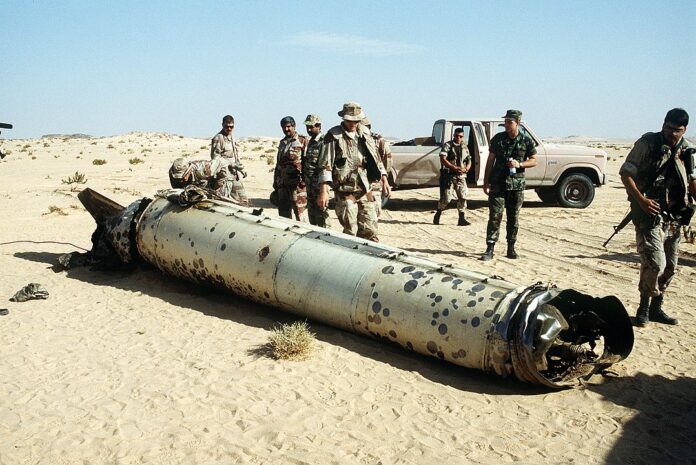
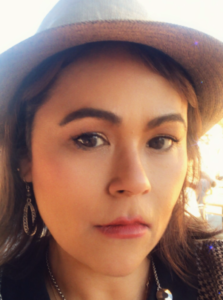
EDITOR’S NOTE: Over the past few weeks, the world has witnessed Russia’s invasion of Ukraine. In the 1990s, Iraq invaded Kuwait, which led to Operation Desert Storm, where the United States got involved. Sahar Mulla-Livingston, a resident of Province, was in the region during that time and has a unique story to tell, having lived in an area of the world affected by war. Here it is:
The Russian invasion of Ukraine brings back memories. The sudden overnight nature of the invasion, which happened on Feb. 24, remind me of a few similarities to the first Gulf War that also began with overnight invasion.
It was May of 1990. I had been hired on as a junior reporter for the local English language newspaper, the Gulf Daily News in the Kingdom of Bahrain.
I started off shadowing senior reporters at first, accompanying a senior reporter, David King, covering high profile events including Bahrain’s International Air show, F1 Grand Prix, and slowly on my own, covered the many press conferences, fires, road accidents, concerts, exhibitions, art shows and press launches.
It all seemed perfectly normal, but little did I know that soon there would be a real story to cover – war. A few months after I started at the Gulf Daily News, Kuwait was invaded overnight by Iraqi President Saddam Hussein and his army on August 2, 1990.
The Gulf War was short lived but not short on destruction. My initial excitement of being a reporter during such a turbulent time turned to moments of concern and fear of not knowing what could happen next.
The invasion of Kuwait was a huge breaking news event for our publication, but it went beyond that. There was a panic in the air as many Bahrainis were stranded in Kuwait. The local Kuwaitis, as well as an expatriate community fled to Bahrain to escape war-torn Kuwait.
The six Gulf countries, Bahrain, the United Arab Emirates (UAE), Qatar, Sultanate of Oman, Kuwait and Saudi Arabia were all under the threat of chemical warfare from Hussein.
I’d always looked up to my mother. She wrote short stories for local newspapers in Arabic and Urdu. And here I was, covering the story of a lifetime
We were advised by the government to seal off all our windows and doors as a safety measure. There was a fear of chemical attacks and the threat of scud missile attacks during the war, that landed far away in deserts of Bahrain and Saudi Arabia.
Soon, the news of invasion spread across the Gulf, the Middle East and the world.
It all became real.
Adrenaline replaced my thoughts of slight fear when I found myself driving to work amidst the screaming of air raid sirens, alerting people to take cover or hide inside their home or office.
It was invigorating to be reporting the news in such a perilous time.
But it was also sad to see reports about how many people in Kuwait were hurt, wounded, and separated from their families.
I was a bundle of mixed emotions, moved by the unpleasant facts of war, trying to figure out whether to be excited, sad, or afraid.
Iraq’s invasion of Kuwait had provoked an outrage across the world. Soon the U.S. and their allies sent their warships and fighter troops to defend Kuwait and protect surrounding Gulf countries affected by Saddam’s chemical warfare.
That’s when the actual war began; when the U.S. and the allied forces started attacking Saddam Hussein’s army with ground and air forces, with intentions to liberate Kuwait and move Saddam’s army out of the Gulf.
Saddam ordered his troops to destroy Kuwait’s oilfields and inflict maximum casualties. Iraqi forces also destroyed oil refineries and other oil installations.
The war came to an end when Iraqi troops withdrew from Kuwait and retreated back to Iraq on February 28, 1991.
During the short war, the newspaper I worked for was the only local English publication along with a couple of national Arabic newspapers “Al Ayam” and “Akhbar Al Khaleej.” Reuters and the Associated Press also had branch offices in the Gulf.
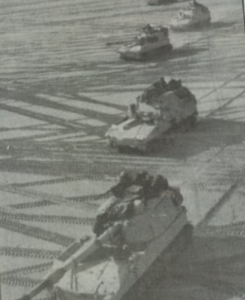
CNN was the only global 24-hour satellite news network that gave live coverage on the Gulf War and called it “Operation Desert Storm.” Also, BBC journalists started broadcasting live from Bahrain and Saudi Arabia for the first time.
I met CNN’s Wolf Blitzer and Charles Jaco when they visited Bahrain for a press conference after the war ended. I interviewed Jaco for a story. He was hilarious in his delivery of news on CNN and somehow provided us humor while covering the Gulf War.
My ex-colleague at the Gulf Daily News Saji Saran recently informed me that newspaper did a special report on January 17, 2021 marking the 30th anniversary of “Operation Desert Storm.”
Bahrainis and expatriates who lived in the kingdom at the time recalled what life was like hiding for cover one moment and sneaking on to rooftops the next, to watch explosions light up the sky.
As the war ended, I was conflicted in that I somewhat felt my adventure was over.
But now that I am mature, I know that war never brings peace to anyone. Some survive the turmoil, but for some healing may take longer. It’s devastating. I hope that Russia’s invasion of Ukraine is short lived.
Let’s make the world a better place to live – in peace. That’s what my mother would have wanted.

![Are you ready for monsoon season? [Mason Callejas]](https://www.inmaricopa.com/wp-content/uploads/2021/07/Haboob-Rolling-In-2-218x150.jpg)

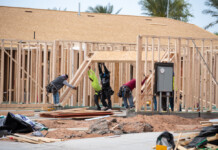

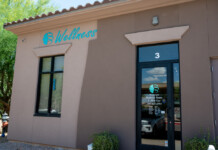

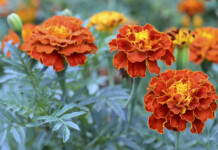
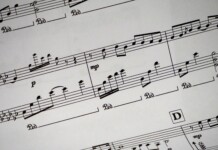
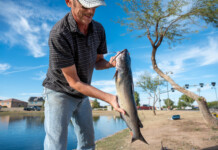



![Alleged car thief released without charges Phoenix police stop a stolen vehicle on April 20, 2024. [Facebook]](https://www.inmaricopa.com/wp-content/uploads/2024/04/IMG_5040-218x150.jpg)